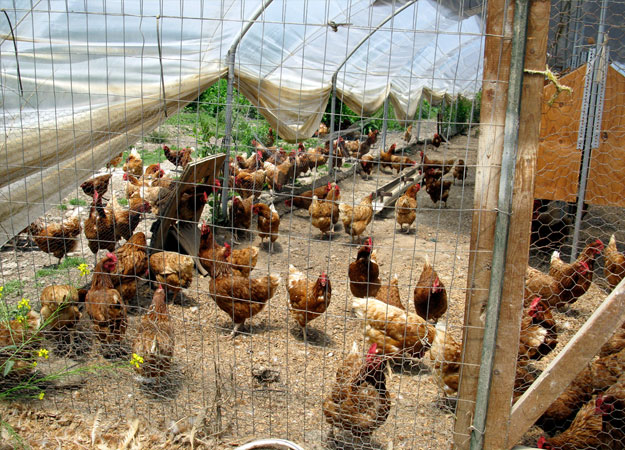Today I'm writing about Islam, in lieu of a book we're reading in English class, and it's the perfect opportunity for me to explore a little bit of the Qur'an, as it might apply Saud Hunter from the previous post. In his brief bio on Instagram he mentions that he is Muslim, and so I wanted to explore how hunting, meat (or just killing animals in general), is addressed in the Qur'an.
As many of you probably know the Qur'an sets out some outlines about what kind of food is halal, or allowed to eat. Halal meat must comply to the following standards:
- The name of Allah must be mentioned at or around the time of sacrifice.
- The animal to be eaten must not be one that died by itself, or be strangled to death, beaten to death or has fallen to its death.
- The animal must not be killed by goring attacks i.e. by horns, arrows or stabbed to death, or has been eaten by other animals.
- Consumption of blood is prohibited, therefore must be drained.
- Pigs are forbidden for consumption.
- In addition, all methods or procedures that make the process of death easier and painless should be utilised.
**I didn't include all of the requirements for the sake of brevity, but for more information the site above was quite informative.
Essentially, the animal must be healthy and must be killed by a specific cut to the throat. The main purpose of requiring food to comply to those standards is so ordinary humans understand that the animal is a sacrifice and it’s a privilege granted by Allah. It’s so that we don’t take an animal’s death for granted, and we respect and thank the animal for dying so that we can eat.
Now, halal requirements have some implications in the modern world, in which many animals are pre-stunned by an electric current before slaughter. The current doesn't kill them, but rather renders them unconscious so they feel less pain and stress in the moment of slaughter. The issue arises when some Muslim religious leaders oppose pre-stunning on the grounds that pre-stunning violates the requirement of being "healthy" at the time of death. But many others point to the last requirement I have posted when saying that pre-stunning is totally acceptable. According to them, the Quran also says that the sacrifice of an animal should be as merciful as possible, and pre-stunning ensures a less painful death.
 |
| Happy, organic, halal chickens on Norwich Meadows Farm |
In fact, some Muslims, like farmer Zaid Kurdieh, believe halal meat should be wholly organic. This ensures the animal is healthy (minus antibiotics) and lived a happier life than in would have in, say, in a feedlot. Kurdieh believes that the word “merciful” should apply to the animals’ lives and not just the way they die. The animal's quality of life matters just as much, because all animals deserve to be treated kindly and be provided with what they need to lead a natural, stress-free life.
Otherwise, the only difference between halal meat and non-halal meat is the fact that it’s been blessed, because if the animal was abused its whole life, we can forget all about "mercy". The halal requirements on the website of Mr. Kurdieh's farm, Norwich Meadows, are quite interesting and much more interwoven with organic obligations.
The emphasis on a merciful death also has implications about the animals Saud Hunter kills. His habits seem to be against the Quran, because his animals are dying in “violent” means. However,
I would say the wild animals he kills lived a much healthier life than the majority of animals killed in a US slaughterhouse. The antelope from the previous post lived its whole life free with its herd, eating grass instead of grain like it’s supposed to, running around as much as it wants, according to the rules of nature. And once it’s killed, it won’t pass through an industrial slaughterhouse only to be processed and eventually possibly be thrown away once it spoils because it wasn't bought or eaten. That antelope will likely be used much more efficiently, so I think that making sure the animal didn’t die in vain is an act of great respect that many cows in our own backyards aren't getting.
So if we apply requirements for meat to be halal to Saud’s situations, there is at least an argument we can make to say that the meat is halal. Of course, I don’t know exactly what goes on when he hunts or whether or not he even intends for the meat to be halal, but it seems to me that he respects the animals and the Qur'an's requirements enough to treat them with the dignity every creature on earth is entitled to.
Ruxi–
ReplyDeleteYour post was really interesting because we Jews also have certain requirements of the meat we eat that I just realized, according to your list of what the Quran has to say about eating meat, is very similar to our own. If I'm not mistaken, a rabbi needs to be present when the animals are killed in a merciful and humane fashion. We cannot east, as a lot of people know, pigs and shellfish (convenient for me because I dislike both), but I think those are for different reasons. As far as to what lengths people will go to make sure their meat is healthy and "happy," I know that my mom will only get meat at Harrison's Poultry Farm in Glenview. That place has been open for over a hundred years and their meat is actually pretty tasty while it is naturally grown and humanely slaughtered. Again, it's interesting to think about the lengths, but it's also interesting to think about why people do so. I suspect it's so that we don't feel so guilty about loving meat.